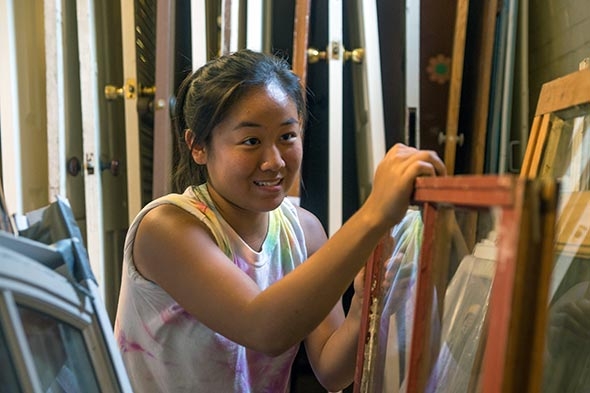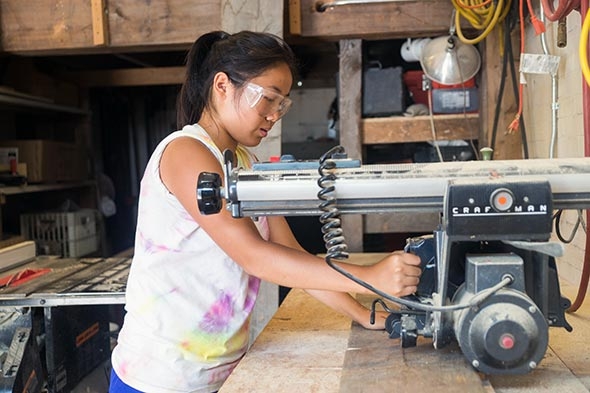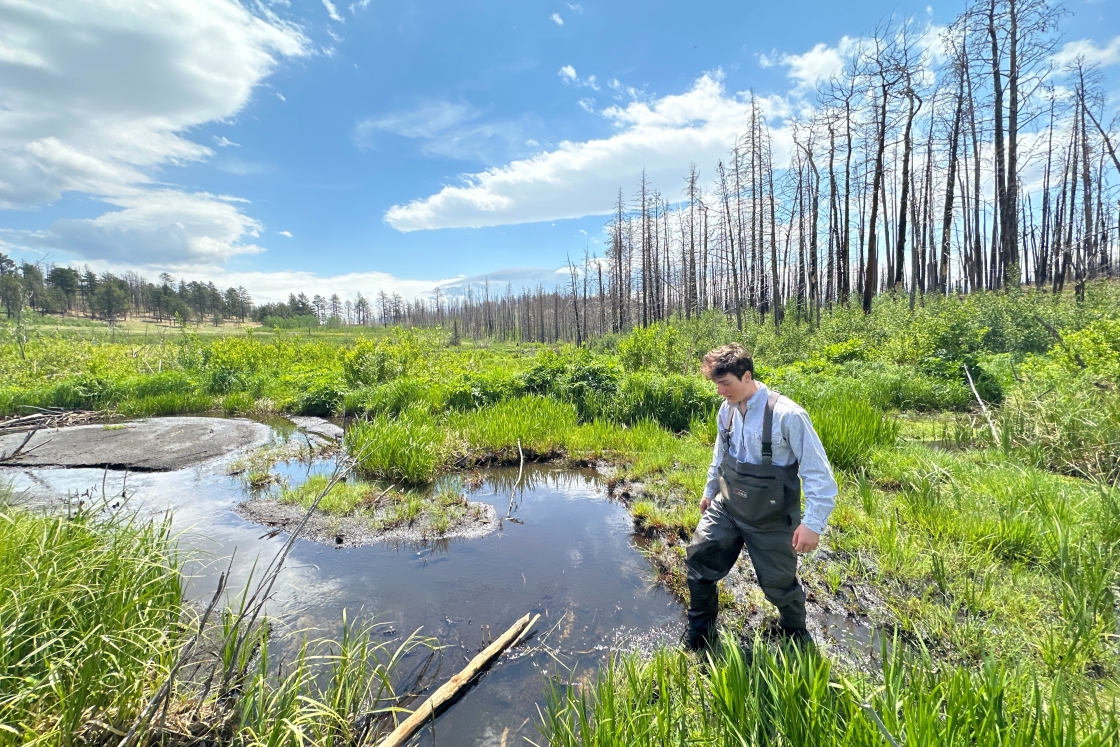During the school year, Katie Zhang ’16, spends a lot of time in the lab. This summer, though, she’s traded the lab bench for a rooftop.

Katie Zhang ’16 says working for COVER Home Repair has given her a better understanding of the Upper Valley. (Photo by Eli Burakian ’00)
Zhang, an engineering major, is one of this year’s 22 Dartmouth Partners in Community Service summer interns, a program run by the William Jewett Tucker Foundation. DPCS provides funding for students to work eight to 10 weeks for nonprofit organizations, including health clinics, youth centers, and schools in New York City, Washington, D.C., San Diego, Calif., and other places.
Zhang, however, is sticking closer to campus. She is spending the summer working at COVER Home Repair, a nonprofit based in White River Junction, Vt., that helps with home repairs for individuals and families who cannot afford them.
Zhang began volunteering occasionally with COVER on weekends during spring term. Now the Kansas City, Mo., native works 40 hours a week for the nonprofit. COVER performs repairs such as roofing and weatherization on homes within a 45-mile radius of White River Junction, Zhang says.
“I really like being on roofs, actually,” she says with a smile. “It’s great to go around the Upper Valley and get a better understanding of the communities we are a part of.”

Internships such as Zhang’s give students incredible learning opportunities, says the Tucker Foundation’s Kara Quick. (Photo by Eli Burakian ’00)
DPCS interns are gaining a better understanding of communities across the country. In Pine Ridge, S.D., Autumn White Eyes ’14 is interning as a student mentor and teacher’s aid at her alma mater, Red Cloud Indian School.
“I wanted to give back to my own community, because the Pine Ridge Indian Reservation is a place of constant struggle,” says White Eyes. “There is an 80 percent unemployment rate on the reservation and not very many students go on to higher education.”
While she enjoys giving back, White Eyes, a Native American Studies and English double major, believes the work will be beneficial in the future.
“I think the most rewarding part of this summer is that I am gaining experience working with youth, which is something I’d like to do for a future career,” she says.
Kara Quick, program manager for fellowships and internships at the Tucker Foundation, says DPCS offers a special opportunity.
“The direct service component of DPCS internships provides really incredible learning opportunities for students,” says Quick. “They get to know the ins and outs of innovative nonprofit organizations, they build relationships with community members, and they learn so much about the complexities of social justice issues in these communities.
Andrew Nalani ’16, who is working for Partners for Youth Empowerment in Langley, Wash., is thankful for the experience.
“I believe that young people thrive in spaces where they are heard, respected for the gifts they bring to community, and encouraged to take creative risks in safe spaces,” says Nalani. “I am deeply grateful that DPCS has given me a chance to start this work early.”
DPCS interns can work during any academic term, but summer term sees the most students serving in this capacity. Interns are also matched with a Dartmouth alumnus, who serves as a mentor for the students.
The Tucker Foundation dates back to 1951. It was founded by President John Sloan Dickey and the Board of Trustees in honor of Dartmouth’s ninth president, William Jewett Tucker, who served from 1893 to 1909. A member of the Class of 1861, Tucker helped usher Dartmouth into the modern era. He worked to increase the size and scope of Dartmouth—tripling the number of students and faculty members during his tenure. In addition, he helped build 20 new buildings and broaden the curriculum.

